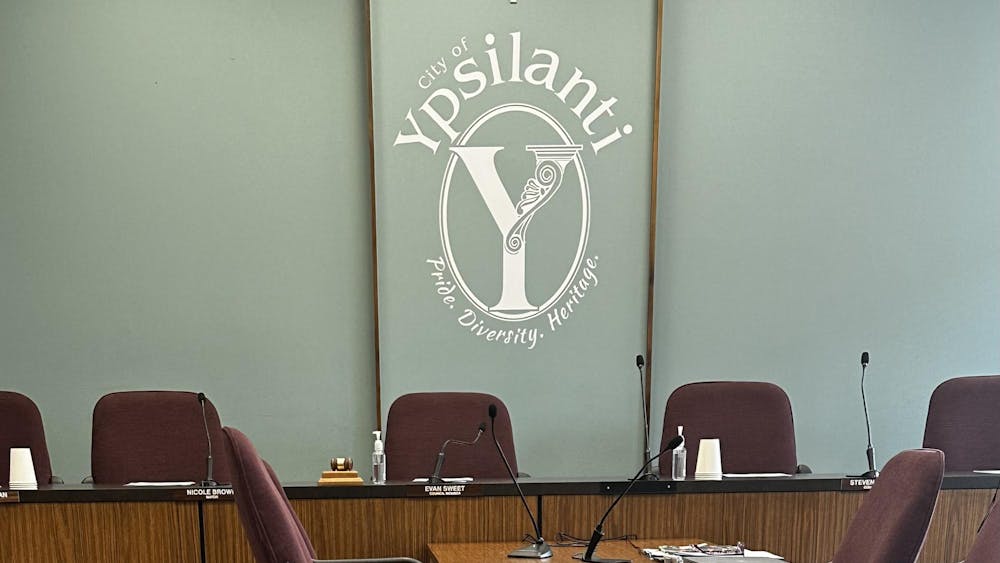The Michigan Department of Education announced new testing standards in the Michigan Test for Teacher Certification (MTTC) earlier this month. Education majors are required to pass this standardized certification test before obtaining their teaching license in the state of Michigan.
The MTTC is broken down into three examinations for in-state education majors, according to the MTTC website: the Professional Readiness Examination (PRE), the elementary-level certification test and the secondary-level certification test.
The updated MTTC appears to be significantly more difficult. Priot to the changes, 92 percent of applicants passed the examination. Conversely, 26 percent of applicants passed the updated version administered this year.
Eastern Michigan University has always been known for its teaching program. In 1853, EMU, then called Michigan Normal College, was only the second college in the U.S. to provide training for schoolteachers. Since then, the university’s education program has become a well-respected institution known for producing high-quality education professionals.
Even with a teaching degree from EMU, getting a teaching license and finding a job in the field of education will become much more difficult for students facing this new certification test.
Senior and Spanish K-12 education major Ariel Robinson has already taken the new MTTC, and thinks the more rigorous math section is the reason so many people have done poorly on the examination.
“I think that’s unfair for potential teachers not going into the math field,” Robinson said. “I think it would be much more fair of the test if they did it across the board.”
Bill Disessa, a spokesperson for the Michigan Department of Education, said that the math section is not the only part of the test that has changed.
“Math was a focus, but that’s not the only one,” Disessa said. “There are several tests that have been changed and made more rigorous – and others that may follow – but its not correct to say that it’s the only subject that’s been changed.”
“We want the best and brightest teachers in Michigan classrooms,” State Superintendent Mike Flanagan said in a press release. “Increasing the expectations necessary to pass the certification exam gets us closer to that goal.”
The press release states that education majors must have a more masterful understanding of reading, writing and math portions of the PRE education majors are required to pass the PRE before enrolling in student teaching in the state of Michigan. The College of Education at EMU requires applicants to pass the examination before admittance.
“I think what they are trying to do is rewrite the test on what they think is a better alignment with the state and national standards,” Beth Kubitskey, the interim associate dean of students and curriculum for the College of Education, said.
She said that there is always an adjustment period after changes like the ones seen in the new MTTC.
“Once students know what’s on the test, and they are able to prepare better for the test, they’re going to see an increase in pass rates,” Kubitskey said.
There has been talk about changing the MTTC for a long time. According to an article published by educationreport.org, several deans from around Michigan were calling for measuring the effectiveness of teachers in the classroom as early as 2008.
A stronger focus on assessing science, technology, engineering and math (STEM) fields has also been called for in the past.
“That is part of it,” Disessa said about the changes made to the MTTC. “But it’s not just STEM related. There are new areas. Things that just weren’t in the old test.”
Disessa said that superintendent Flanagan and the Michigan Department of Education saw that something needed to be done in order to generate more effective, highly qualified teachers in the state of Michigan. This is what spurred the changes to the MTTC.
“What the former tests looked at producing was a minimally qualified teacher,” Disessa said. “Now with this test – a more rigorous test – the new paradigm is a more qualified teacher that can step into a class and not only teach regular subjects but even, if needed, advanced placement [classes].”
“I think that they meant well,” Robinson said. “I think they wanted better teachers. But I don’t think they did it in the right way.”
“It’s a more rigorous test,” Disessa said. “They’re going to have to ask themselves some questions.
Are they serious about going into teaching? If so, they’re going to have to make sure that they’re prepared.”
Kubitskey is unconvinced that a student’s performance on the MTTC is a direct reflection of that particular person’s aptitude for teaching. The COE will need new methods for preparing students
for the examination.
“I am still trying to work out myself,” she said. “What do we want these methods to be? We’re going to be doing a lot of data analysis.”
Kubitksey said that students who fail the MTTC can retake the test multiple times.
Robinson said she is worried for other students who will have to take the new MTTC.
“I don’t think it’s a fair assessment,” she said.
Disessa said that the state would be making further changes in the future. These changes would include an adjustment of tests fees and changes in the common core curriculum.
If you have questions about the new standards, visit the COE’s web page or the department of educations website at michigan.gov/mde.








